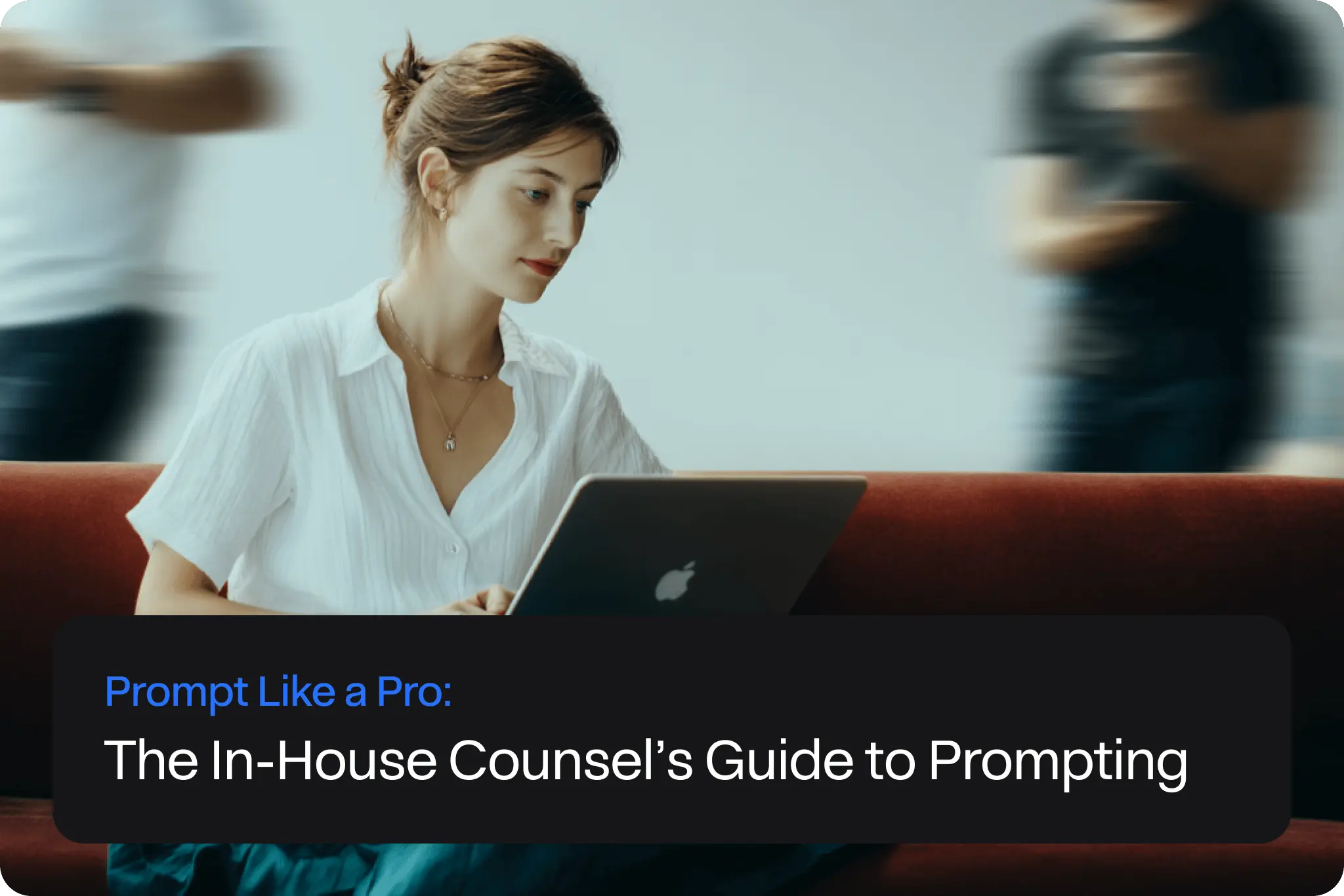Search
Featured Articles
By our in-house experts
Dec 4, 2025
10 Benefits of Contract Management
Discover the top 10 benefits of contract management, from efficiency and compliance to cost savings and improved financial value. Learn how CLM systems transform workflows.
Nov 3, 2025
Stages of Contract Lifecycle Management: From Chaos to Control
Discover the key phases of contract lifecycle management; from initiation and drafting to renewal, and learn how Pocketlaw turns contracts into strategic assets.
Sep 30, 2025
Product Update: Projects
Discover Pocketlaw Projects: group related contracts, build hierarchies, and use AI with full context for faster, clearer contract management. Learn more...
Expert Guides on Contract Processes
Stay updated with the latest trends & insights in legal tech.
Jun 11, 2025
Whitepaper: The In-House Counsel's Guide to Prompting
Learn how in-house legal teams can prompt AI tools more effectively. Get practical tips, real examples, and a cheat sheet. Download the free whitepaper.
May 28, 2025
What Is Contract Acceptance?
Contract acceptance is the clear, unconditional agreement to an offer, creating a legally binding agreement between parties.
Apr 17, 2025
Legal Tech Tools Buyer's Guide 2025: 10 Key Considerations
Discover 10 essential factors to evaluate before investing in legal tech - from AI and security to scalability. Make smarter decisions for your legal team.
Mar 18, 2025
13 Effective Strategies for Contract Negotiation
Learn contract negotiation strategies with tips on preparation, active listening, and using AI tools for better agreements and lasting partnerships.
Mar 18, 2025
How to Execute a Contract
Learn how to execute a contract properly, from drafting and reviewing to signing and post-signing management, ensuring legal validity and efficiency.
Mar 18, 2025
AI for Legal Documents in 2025: Use Cases, Trends & Tools
Discover AI for legal documents in 2025: Explore advanced tools and trends that revolutionize contract review, research, and workflow automation.
Mar 18, 2025
What Is an Addendum?
An addendum modifies a contract without altering its core terms. It’s used for deadline changes, pricing updates, or additional services, ensuring flexibility while maintaining legal clarity.
Mar 18, 2025
10 ChatGPT Use Cases for Lawyers & Legal Teams
Discover how ChatGPT enhances legal research, drafting, and compliance while understanding its limitations and the best ways to use AI effectively in legal practice.
Mar 18, 2025
Legal AI Tools for Lawyers & Legal Teams in 2025
Explore the top legal AI tools for 2025, from document review to contract management, helping legal teams automate tasks and enhance efficiency.
Product Updates
Latest product information and guides.
Sep 30, 2025
Product Update: Projects
Discover Pocketlaw Projects: group related contracts, build hierarchies, and use AI with full context for faster, clearer contract management. Learn more...
Oct 30, 2023
AWS trusts us, why wouldn't you?
Access Pocketlaw’s legal tools easily on the AWS Marketplace. Simplify your legal tasks with our innovative platform. Find out how.
May 9, 2023
Pocketlaw achieves ISO 27001 compliance
Discover Pocketlaw's dedication to data security through achieving ISO 27001 compliance. Ensuring trust and integrity in our legal solutions.
Product Guides
Latest product information and guides.
May 7, 2024
Simplifying Contract Review with AI: Buyer's Guide
Discover AI's impact on contract review. Save time, and money & mitigate risks. Find the perfect solution in our AI contract review buyer's guide
Mar 19, 2024
AI Metadata Labelling for Simplified Contract Management
Transform your contract management with AI metadata labelling. Streamline processes, enhance accuracy, and simplify document handling effortlessly.
Mar 19, 2024
Redlining - Understanding Legal Document Redlining A Detailed Guide
Master the process of legal document redlining with our detailed guide. Learn the techniques and best practices for effective document negotiation.
Customer Studies
Customers sharing their experiences and success stories.
One solution for five countries
See how Strömma streamlined contract management across five countries with Pocketlaw’s AI-powered CLM tools, improving efficiency and collaboration.
From a fragmented system to a streamlined workflow
See how Teya used Pocketlaw to automate contracts, standardize legal processes, and improve efficiency, reducing contract turnaround time from weeks to days.
Pocketlaw makes me sleep better at night
See how Cambio Healthcare Systems saved time and improved contract management with Pocketlaw’s AI-powered legal tools.
Contract Templates
Access templates by our expert lawyers.
Jan 4, 2024
What is a Share Purchase Agreement
Delve into the intricacies of share purchase agreements & their importance in business transactions. Discover how to draft an effective agreement with Pocketlaw
Oct 3, 2022
Board Minutes
Ensure accurate & efficient board meeting minutes with Pocketlaw's guidelines, streamlining your corporate governance & record-keeping processes.
Apr 13, 2021
Shareholders' Agreement - a Comprehensive Guide To What They Are & When to Use Them
Secure your company's future with a solid shareholder agreement, using Pocketlaw's expert guidance to ensure clarity and prevent disputes.






















